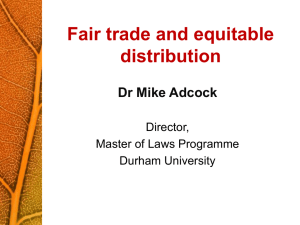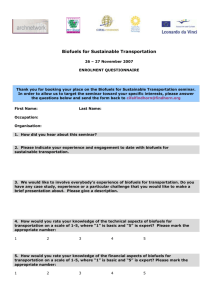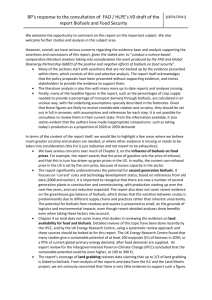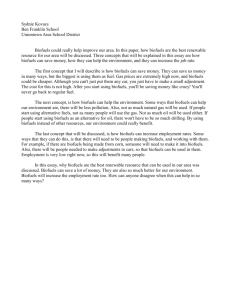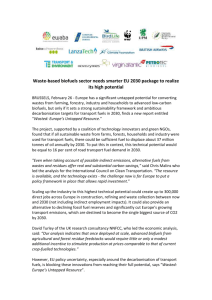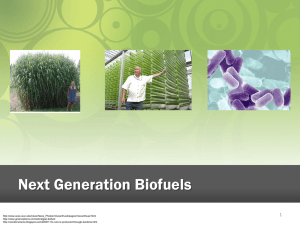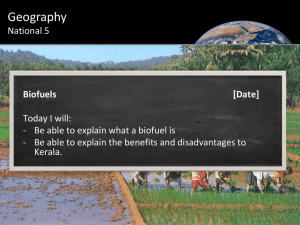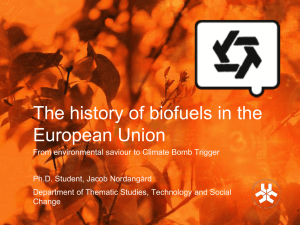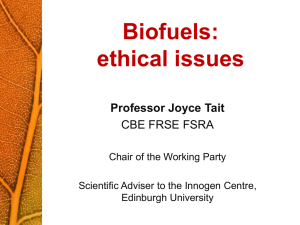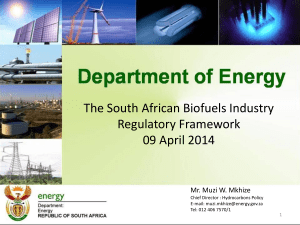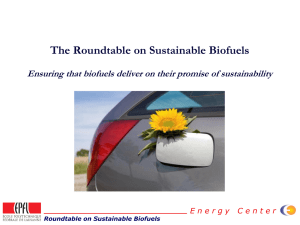joint_biofuels_statement_aai_oxfam_foee
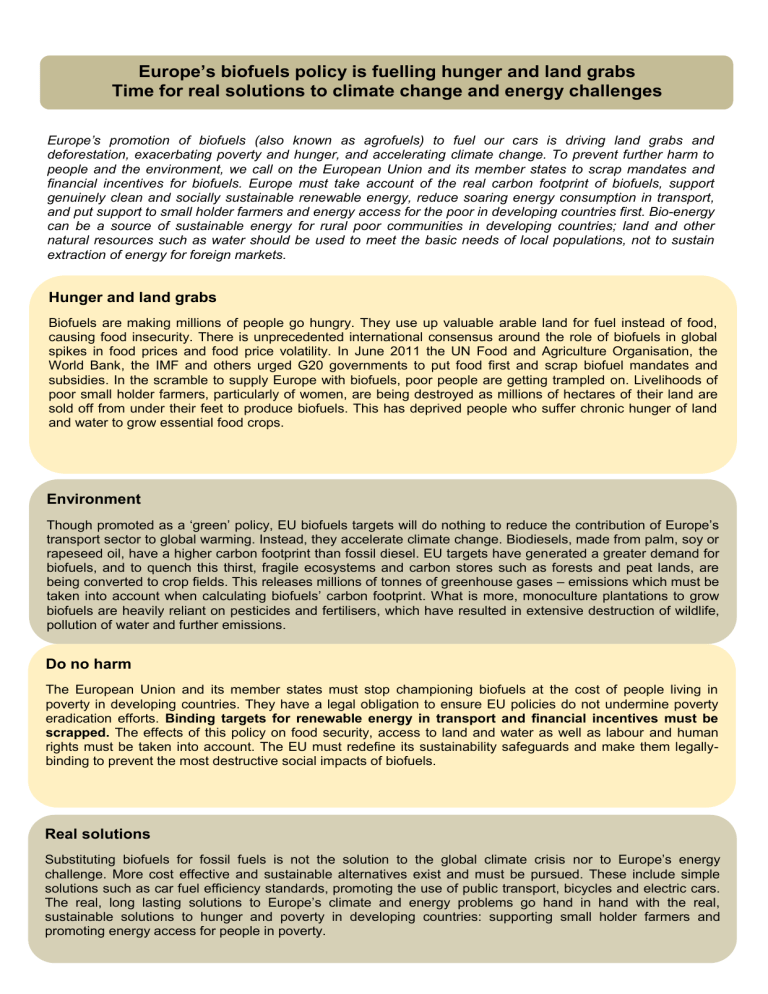
Europe’s biofuels policy is fuelling hunger and land grabs
Time for real solutions to climate change and energy challenges
Europe’s promotion of biofuels (also known as agrofuels) to fuel our cars is driving land grabs and deforestation, exacerbating poverty and hunger, and accelerating climate change. To prevent further harm to people and the environment, we call on the European Union and its member states to scrap mandates and financial incentives for biofuels. Europe must take account of the real carbon footprint of biofuels, support genuinely clean and socially sustainable renewable energy, reduce soaring energy consumption in transport, and put support to small holder farmers and energy access for the poor in developing countries first. Bio-energy can be a source of sustainable energy for rural poor communities in developing countries; land and other natural resources such as water should be used to meet the basic needs of local populations, not to sustain extraction of energy for foreign markets.
Hunger and land grabs
Biofuels are making millions of people go hungry. They use up valuable arable land for fuel instead of food, causing food insecurity. There is unprecedented international consensus around the role of biofuels in global spikes in food prices and food price volatility. In June 2011 the UN Food and Agriculture Organisation, the
World Bank, the IMF and others urged G20 governments to put food first and scrap biofuel mandates and subsidies. In the scramble to supply Europe with biofuels, poor people are getting trampled on. Livelihoods of poor small holder farmers, particularly of women, are being destroyed as millions of hectares of their land are sold off from under their feet to produce biofuels. This has deprived people who suffer chronic hunger of land and water to grow essential food crops.
Environment
Though promoted as a ‘green’ policy, EU biofuels targets will do nothing to reduce the contribution of Europe’s transport sector to global warming. Instead, they accelerate climate change. Biodiesels, made from palm, soy or rapeseed oil, have a higher carbon footprint than fossil diesel. EU targets have generated a greater demand for biofuels, and to quench this thirst, fragile ecosystems and carbon stores such as forests and peat lands, are being converted to crop fields. This releases millions of tonnes of greenhouse gases – emissions which must be taken i nto account when calculating biofuels’ carbon footprint. What is more, monoculture plantations to grow biofuels are heavily reliant on pesticides and fertilisers, which have resulted in extensive destruction of wildlife, pollution of water and further emissions.
Do no harm
The European Union and its member states must stop championing biofuels at the cost of people living in poverty in developing countries. They have a legal obligation to ensure EU policies do not undermine poverty eradication efforts. Binding targets for renewable energy in transport and financial incentives must be scrapped.
The effects of this policy on food security, access to land and water as well as labour and human rights must be taken into account. The EU must redefine its sustainability safeguards and make them legallybinding to prevent the most destructive social impacts of biofuels.
Real solutions
Substituting biofuels for fossil fuels is not the solution to the global climate crisis n or to Europe’s energy challenge. More cost effective and sustainable alternatives exist and must be pursued. These include simple solutions such as car fuel efficiency standards, promoting the use of public transport, bicycles and electric cars.
The real, long lasting solutions to Europe’s climate and energy problems go hand in hand with the real, sustainable solutions to hunger and poverty in developing countries: supporting small holder farmers and promoting energy access for people in poverty.
